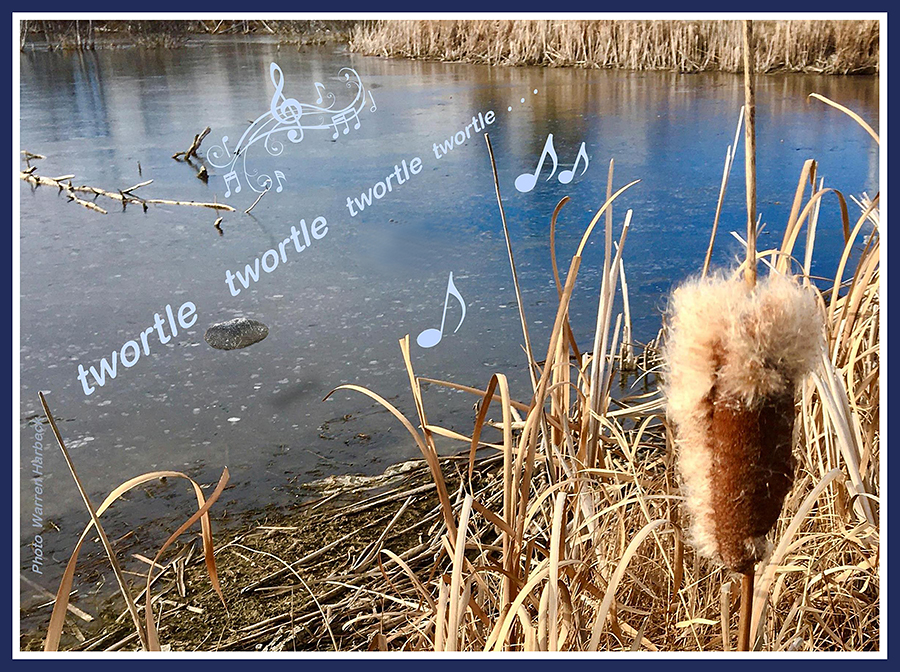
Twortle, twortle, twortle!COFFEE WITH WARREN, with Warren Harbeck |

|
Twortle? What’s that? To find out, join me on a lakeside encounter my wife Mary Anna and I had some years ago with longtime coffee companion Angus McNee, of Ghost Lake Village at the time. He coined the onomatopoeic word to describe one of the most mysteriously musical sounds of winter. All it requires is a frozen pond or lake and a few stones to bounce across it. Here's how Mary Anna described it in her diary for Nov. 12, 1998:
AH, “TWORTLING,” what a perfect word for such a beautiful sound. The other day, I emailed Angus, living now in the Okanagan, and asked him if he remembered the occasion. “How nice that you should recall our twortling on the lake,” the former mayor of Ghost Lake Village responded. “It had become a memory in my mind, when suddenly you reminisced that call of the pebbles as they spun across the thin ice. “As you know, the ice is not very thick when the reverberation is produced and twortling can be heard. As the ice thickens, the twortling decreases and the stones simply skid along with little sound. The reward, when good conditions prevail, is that anyone can twortle, unlike skimming stones on water, which needs skill and a little luck.” This memory lane journey into twortling land raised my curiosity about the science behind such a beautiful sound. The phenomenon is technically referred to as “acoustic dispersion.” In twortling, it’s caused by an event, such as the sound of a stone bouncing across the ice and dividing into various frequencies as it echoes through layers of differing densities, ice versus water, and thus moving at different speeds. By the way, twortling is first cousin to another kind of beautiful dispersion, optical dispersion: the rainbow! Happy twortling!
© 2021 Warren Harbeck |